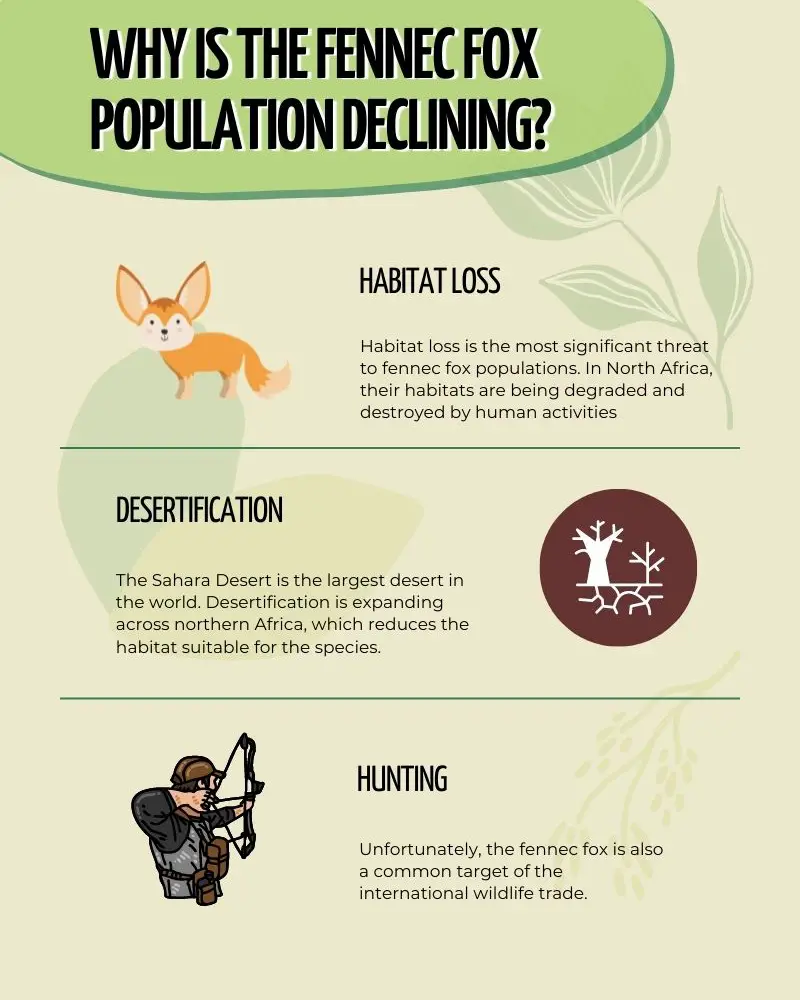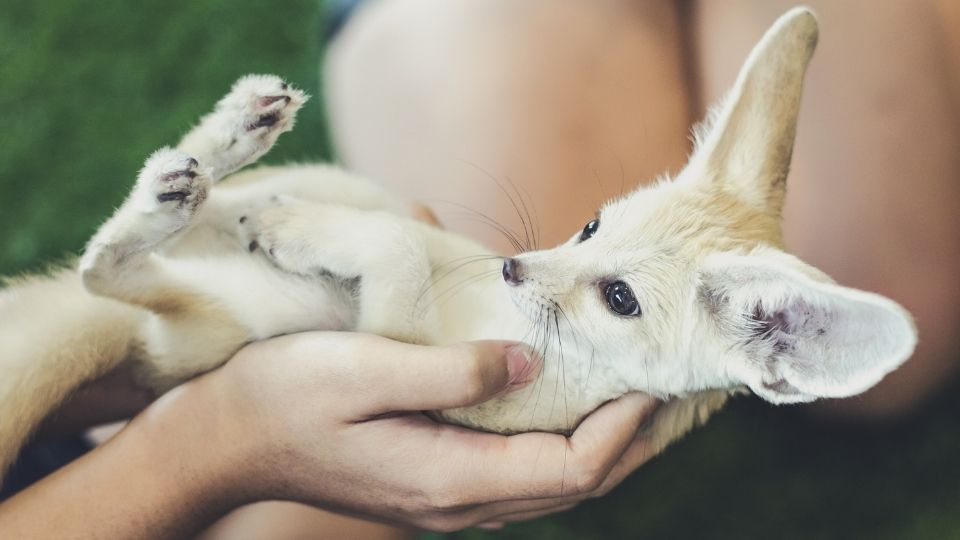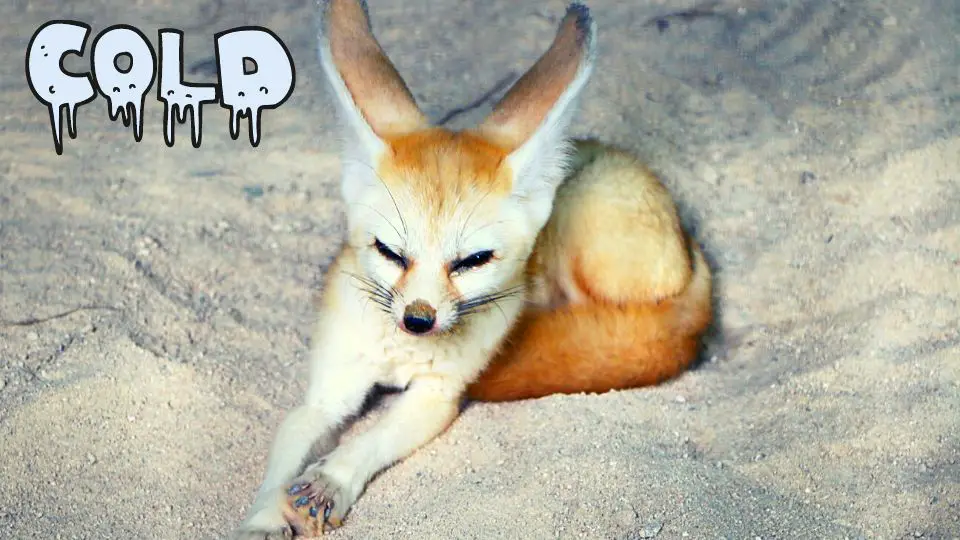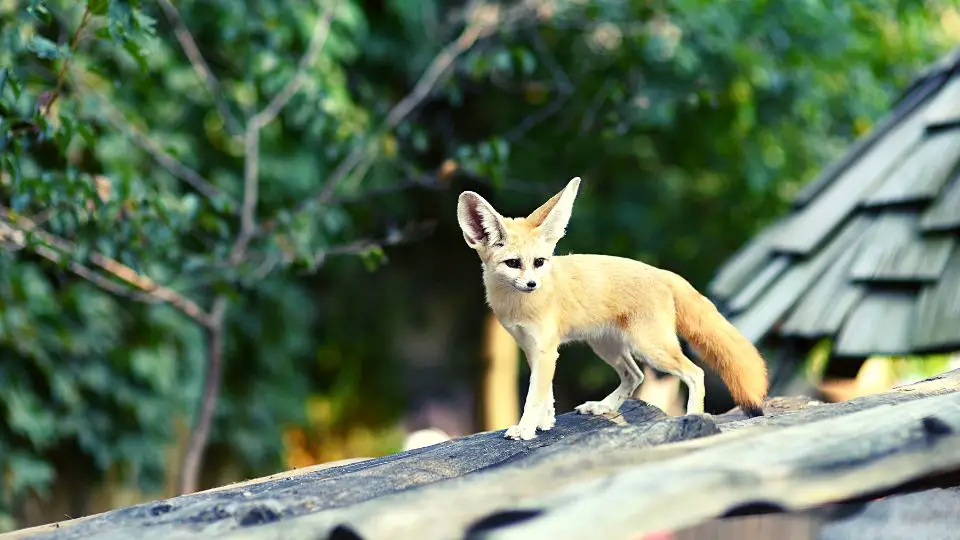The fennec fox population is not considered endangered, and its current conservation status is “Least Concern”. This means that the fennec fox is not currently in danger of becoming extinct. However, its population may be declining due to habitat loss and hunting pressure in some parts of its natural habitat.
When was the fennec fox discovered?
Fennec Foxes are part of the “true” fox family ( Vulpes Zerda). There are 12 species of true foxes, and 25 other species that look a lot like foxes. They all belong to the Canidae Family and are derived from a common ancestor.
Foxes evolved in North America like other canids. The ancient ancestor of the fox crossed the Bering Straight into Asia 8 million years ago. He then pushed through Asia, Europe, and Africa. The Fennec Fox is an excellent example of microevolution.
The fennec fox was discovered in the hottest environment on Earth: North Africa. They have large ears and larger extremities that help them stay cool and thermoregulated during hot days.
How many fennec foxes are left in the world?
The IUCN Red List does not have a population estimate for the fennec fox. However, it is considered to be a widespread and common species with no major threats to its population.
Fennec foxes are hunted for their fur in some parts of their range. They are also captured and sold as pets. However, these activities are not thought to be a major threat to the species as a whole.
Experts estimate the number of fennec foxes based on how often they see them. Fennec foxes are good at hiding, so you won’t see them out during the day. With this in mind, biologists can only learn about animals that are kept in captivity (or being captured in order to be sold). This means that captive animals make up a very small part of the world’s population.
Why is the fennec fox endangered?
While the fennec fox is not endangered, its populations are declining due to habitat loss and hunting pressure in some parts of its range. While the species is not currently in danger of becoming extinct, its long-term survival is uncertain.

Habitat loss
Habitat loss is the most significant threat to fennec fox populations. In North Africa, their habitats are being degraded and destroyed by human activities such as agriculture, livestock grazing, and urbanization.
Though fennec foxes pose no direct threat to humans, their habitats are constantly under threat from human settlement. If you think about it, a fennec fox’s life span depends on its habitat. They live up to 14 years in captivity, but can only survive 10 years in the wild. Their unique coloration, thick fur, and long ears allow them to evade diurnal predators. As a result, fennec foxes remain mostly confined to their burrows during the day.
Desertification
The Sahara Desert is the largest desert in the world. It’s also one of the hottest, driest places on Earth. And it’s getting bigger. Desertification is expanding across northern Africa, which reduces the habitat suitable for the species.
The Sahara desert is growing by about 48 km every year. This conversion of habitable land to desert has a direct impact on the fennec fox. As the desert expands, it destroys the fennec fox’s natural habitat and limits its ability to find food and water.
Hunting
Unfortunately, the fennec fox is also a common target of the international wildlife trade. Their pelts are used to make clothing and, in some cultures, the fennec fox is considered a delicacy. As a result, it is not uncommon for fennec foxes to be hunted and killed for their meat.
How do humans affect fennec foxes?
Fennec foxes are native to the Sahara Desert and are well-adapted to life in a hot, dry climate. They have large ears that help them to radiate heat, and they can go without water for long periods of time.
However, as the human population in the Sahara Desert has grown, fennec foxes have increasingly come into contact with people. This has had a number of negative effects on the foxes. For one thing, they are often hunted for their fur. In addition, they sometimes come into conflict with farmers, who view them as pests.
Generally, human activities are negatively impacting fennec fox populations. Encroachment of human habitation into fennec territory has resulted in reduced available ranges for habitation. Hunting for the local and international pet trade also negatively impacts fennec fox populations.
As a result of these threats, fennec fox populations have declined in recent years. Fortunately, there are a number of conservation efforts underway that are working to protect these fascinating animals.
What can be done to help fennec foxes?
The best way to help fennec foxes is to support conservation efforts that are working to protect their habitat. In addition, people can help by not buying fennec foxes as pets.
What are some causes of death of fennec foxes
Some of the causes of fennec fox deaths are related to hunting (not only humans, but also predators) and diseases, but in general, these species are not highly affected by any disease.
Natural predators
The main predators of fennec foxes are jackals, eagles, and desert wolves. These animals usually hunt at night, when the fennec foxes are active. As a result, the fennec fox has evolved a number of adaptations to help it evade predators.
Human hunters
As we already discussed, humans are probably the most fearsome predator of fennec foxes. Some locals would take the fennec foxes home and raise them for their meat, as you would raise a cow or a chicken. People who live in northern Africa will also hunt and trap foxes, either to sell them as pets or for their fur.
Illness
You would know as an exotic pet owner that these foxes should not be given live vaccines. According to some reports, the little foxes are susceptible to parasites as well as any pathogens linked to domestic dogs.
Fennec foxes can have chronic diseases such as hepatitis, encephalitis, and cancer. Hepatocellular carcinomas (HCCs) are the most common primary hepatic neoplasm in dogs, and they are common in fennec foxes kept in captivity. Of 54 captive fennec foxes tested, 15 (28%) had been diagnosed with HCC. In eight of these, the foxes had palpable hepatic masses.
Although it is not well documented, there will likely be more dangers for the fox in the wild. This tiny fox is not well-known and only recently has there been an increase in interest in the species as an exotic pet.
Why do we need fennec foxes?
We need fennec foxes because they are small predators that help to control the populations of rodents and locusts. This is important because overpopulation of these animals can pose a direct threat to the environment and crops.
Fennec foxes are native to North Africa and the Sinai Peninsula, and they have been introduced to other parts of the world through the pet trade. They are nocturnal animals, and their large ears help them to hear their prey from a distance.
Fennec foxes live in burrows, and they only emerge at night to hunt. During the day, they rest in their burrows to avoid the heat of the desert sun. They are well-adapted to life in the desert, and they can go without water for long periods of time. Fennec foxes are important animals, and we should do what we can to protect them.
What would happen if fennec foxes went extinct?
It is hard to say what would happen if a certain animal extincts. Even when a lot of people take part in a study, the results can be very different. We can be sure that if the fennec suddenly goes extinct, it will have effects on all of the animals in the food chain until a new state of balance appears.
Conclusion
Fennec foxes are important animals, and we should do what we can to protect them. While their population is not considered endangered, its population appears to be slowly decreasing based on several reasons.
If these animals were to go extinct, it would have a negative impact on the environment and agricultural crops. But we can help to protect fennec foxes by supporting conservation efforts.







